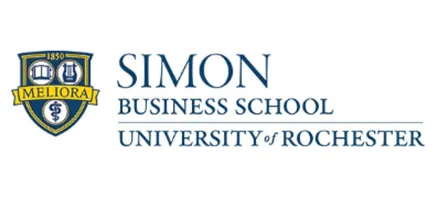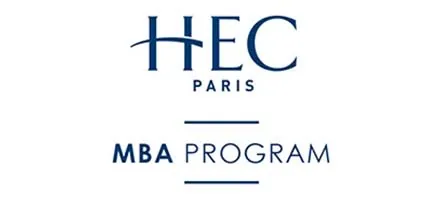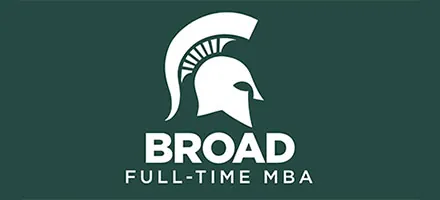
Evan Theiss, Nick Zahn, Sophia Sabbagh, Jacqueline Estrada, Liam England, and Charles Herman, members of American University’s VCIC Undergraduate Student Team being grilled by the judges on their investment thesis.
For Sophia Sabbagh, the email felt almost like she’d just gotten accepted to her dream college.
“Oh my God,” she shouted and her mom came running.
It wasn’t a college acceptance letter, of course. Sabbagh is already a master’s student in sustainability management at American University Kogod School of Business. The email news she was so excited to get is that she’d been selected co-director of American University’s new student-led Eagle Venture Seed Fund.
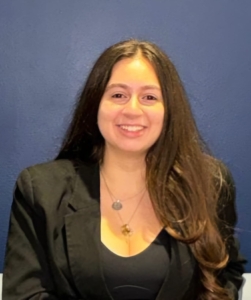
Sophia Sabbagh, master’s student in sustainability management
Launched in February, The fund’s mission is to back the next wave of startups innovating in AI, sustainability, and high-impact social change.
“These areas reflect the biggest challenges – and opportunities – of our generation. AI has the power to accelerate innovation. Sustainability is existential, and social impact ensures that the world we’re building is inclusive,” says Hassan Gad, a Class of 2025 STEM MBA candidate who is co-directing the fund with Sabbagh.
“I’ve seen firsthand how innovation in these fields can change lives, and I want to help fund the people doing that work.”
A FUND 10 YEARS IN THE MAKING
The Eagle Fund launched with an initial goal of raising $250,000 from alumni and other interested investors. It has raised $150,000 to date and is actively seeking ventures in which to make its first investments.It is owned by American University, managed by students, and overseen by AU Kogod’s Veloric Center for Entrepreneurship.
It’s certainly not the first student-led venture fund at a university, or even at American University. But its investment thesis ties directly into two of Kogod’s core values. Dean David Marchick has declared that he wants Kogod to be known as the premier school for sustainability in the country, and in 2023 revamped its pioneering MS in Sustainability Management. He also staked the school’s claim on AI, directing it to “run, not walk” to the front of the revolution.
It was also a natural extension of the work and mission of the Veloric Center, says Tommy White, center director and a five-time entrepreneur with three successful exits.
“This is something you could say was 10 years in the making,” he tells Poets&Quants. “Over the years, students have said, ‘What’s next?’ They wanted more than competitions and internships. They wanted to be in the game.”
White began exploring how peer institutions created student-led funds, especially those focused on early-stage startups. He collaborated with AU’s Endowment Trust, legal counsel, and treasury office to build a structure that would work. The fund is donor-driven. Alumni and other supporters donate into it, and any money returned goes back into the fund.

Tommy White, director of the Veloric Center for Entrepreneurship
While White will guide and mentor, it will be the students who source deals, evaluate companies, meet founders, write investment memos, and vote on decisions. The fund plans to make investments between $2,000 and $15,000 per deal, working alongside local angel investors and venture capital groups
“They’re going to get to invest real money,” White says. “This isn’t just making grades.”
STUDENT SELECTION
Student participation in the fund is selective. To start, there are currently 11 student members including the co-directors, deal managers, investment analysts, and other roles. The goal is to fund three ventures a semester.
To qualify, students must compete in at least one round of the Venture Capital Investment Competition, a national VC process simulation ran by UNC’s Kenan-Flagler Business School and attracting more than 100 colleges each year.
“It’s a great gateway,” says Sabbagh who has participated in the competition four times, both as a Kogod undergrad and master’s student. “You get to role-play as a full investment team and pitch real companies under pressure. Now, with the fund, it’s not a simulation anymore. We’re actually doing it.”
Students members must also be active members of the Private Equity Venture Capital and/or Entrepreneurship Club and be in good academic standing. Between 8 to 12 undergrads and master’s students will be selected to serve a 12-month term.
Gad, a STEM MBA and former VC associate, was selected as co-director after pitching a vision to expand the fund’s reach and impact.
“Every day is different, but I split my time between sourcing deals, managing student analysts, meeting with founders, and aligning with our faculty and external advisors,” Gad says. “We’re not just picking startups, we’re shaping how the next generation of students engages with venture capital.”
White hopes the fund becomes a feeder for the venture capital industry.
“They will have evaluated hundreds of companies,” he says. “They’ll know investors, understand due diligence, and have built real networks.”
BUILDING MOMENTUM
The fund has not yet made its first investment, but is hoping to make a deal before the end of the semester. Students have already sat in on a few meetings, partnered with other VC groups, and received a few pitch decs from startups hoping to attract their dollars.
And word has gotten out to Kogod’s and AU’s larger alumni base.
“The overwhelming comment is, ‘I wish I had that when I was there,'” Whites says. “We’re easily going to fill out this $250,000 round. And eventually, I want to raise an endowed fund that throws off cash year after year.”
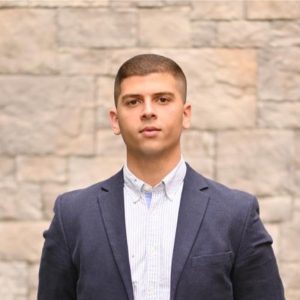
Hassan Gad, 2025 STEM MBA
For Gad, the fund has helped clarify his long-term goals.
“It’s confirmed that I want to stay in the world of early-stage investing,” he says. “But more than that, it’s reshaped how I think about capital. Not just as a financial tool, but as a form of mentorship, belief, and ecosystem-building.
“I do hope to continue working in VC, ideally at the intersection of emerging markets, AI, and climate innovation..”
As an undergraduate, Sabbagh majored in business administration with a specialization in entrepreneurship. She joined AU’s Private Equity Venture Capital Club as a freshman, and rose to its presidency. She took every entrepreneurship course she could, and she sought out faculty mentors who had been in the industry. She’ll continue working in VC after graduation this summer.
She recognizes the responsibility of being the first student director of this brand new fund. It is up to her and Gad to build out a system that sustains itself, that brings in new students who can source, vet, and find promising startups who may very well help shape how business is done. And, then pass that knowledge and excitement to the next crop of student fund members.
“You definitely feel the weight,” she says. “But I’m not scared. I’m just excited.”
DON’T MISS: WHARTON CLAIMS SOLE POSSESSION OF FIRST IN NEW U.S. NEWS MBA RANKING AND HOW EXECUTIVES RANK THE WORLD’S BEST BUSINESS SCHOOLS IN 2025


